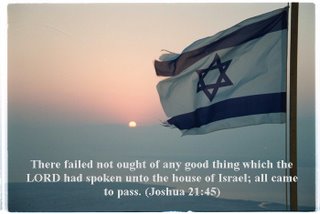War in Israel~Brief History of the on going conflict

Fast Facts: History of the Lebanese-Israeli Conflict
Monday, July 17, 2006
PHOTOS
VIDEO
PHOTO ESSAYS
JERUSALEM — A brief history of the Lebanese-Israeli conflict:
Because Israel and Lebanon have never signed a peace accord, the countries remain officially in a state of war that has existed since 1948 when Lebanon joined other Arab nations against the newly formed Jewish state.
The two countries have been bound by an armistice signed in 1949, which regulates the presence of military forces in southern Lebanon.
With a large Christian minority in an overwhelmingly Muslim region, mercantile and Westernized, Lebanon was considered the least hostile Arab neighbor to Israel — and the weakest. The rare skirmishes that occurred were mostly symbolic.
That began to change as Palestinian guerrillas became active. In 1968, Israeli commandos landed at Beirut airport and blew up 13 Lebanese airliners in retaliation for Arab militants firing on an Israeli airliner in Athens, Greece.
Under pressure from staunch anti-Israeli Arab regimes in 1969, Lebanon signed an agreement that effectively gave away a southern region for Palestinian guerrillas to use as a springboard to infiltrate Israel or launch cross-border attacks.
Israel retaliated regularly as Palestinian guerrillas fired on northern Israel, and Israeli forces invaded southern Lebanon in 1978. A U.N. peacekeeping force deployed and the Israelis pulled out after installing a local Lebanese militia in a border buffer zone, but the attacks continued.
Israel invaded again on a wider scale in 1982 to destroy Yasser Arafat's Palestinian guerrilla movement, which had established itself as a force within Lebanon during the country's civil war that began in 1975. The bulk of Palestinian guerrillas were evacuated from Lebanon, but a new Lebanese guerrilla force, Hezbollah, emerged with the aid of Iran and drawn from the Shiite Muslim community that inhabits southern and eastern Lebanon.
U.S.-sponsored negotiations produced a Lebanon-Israel agreement but that deal died as Lebanon collapsed in another round of civil war.
After a destructive and costly military campaign that lasted for three years, Israeli forces withdrew from most of Lebanon but retained a self-proclaimed "security zone" just north of its own border.
Fighting inside Lebanon would escalate periodically, including a 1993 Israeli bombing offensive and the 17-day "Grapes of Wrath" military campaign in 1996 that left about 150 Lebanese civilians dead. At that time, Israel was reacting against guerrilla attacks by Hezbollah against Israeli soldiers inside the occupied zone and against Katyusha rockets being fired by Hezbollah into Israel proper.
Israel left that zone in 2000, but warned that it would return if its security to the north was compromised.
Hezbollah trumpeted Israel's withdrawal as a great victory but claimed that Israel continued to occupy illegally a small, empty parcel near Syria called the Chebaa Farms.
Diplomats mostly see that claim as a convenient excuse to justify attacks against Israel. Nevertheless, the Israeli-Lebanese frontier had remained largely quiet for the past six years with occasional outbursts — until a cross-border raid July 12 resulted in the capture of two Israeli soldiers and the killing of eight others, sparking the current warfare.

Click image to enlarge
Photo Essays:
•
Mideast Spirals Into Chaos
•
Mideast War Escalates
•
Israel Continues Lebanon Offensive
•
Violence Spreads in Middle East
STORIES
BACKGROUND
LINKS
•
Rockets Fired From Lebanon Rain Down on Israel
•
Hezbollah Rockets Reach Deeper Into Israel
•
Israeli Warplanes Bomb Palestinian Foreign Ministry for Second Time
•
Putin Doesn't Regret Inviting Hamas Leaders to Moscow
•
Hezbollah Chief Appears on TV
•
U.S. Security Teams Arrive in Lebanon to Plan Evacuation of Americans
•
Israeli Security Chief: Israeli Soldier Captured By Gaza Militants is Alive
•
Italy Relays Israeli Demands for Soldiers' Release, Lebanon Says
•
Iran Denies Helping Hezbollah
•
Cabinet: Lebanon Faces 'Real Annihilation,' Accuses Israel of Using Banned Weapons
•
Lebanese Seaports, Road Networks Destroyed in Mideast War
•
Lebanese Guerillas Fire Rockets Into Israel
•
Iran Denies Having Any Troops in Lebanon
IMHO one of the reasons the USA became a super power was because it was in God's plan for the USA to be the protector of the Jews and Israel


United we stand, divided we fall, and if our backs should ever be against the wall, we'll be together, together you and I. GOD BLESS AMERICA & GOD BLESS ISRAEL !




























































0 Comments:
Post a Comment
<< Home